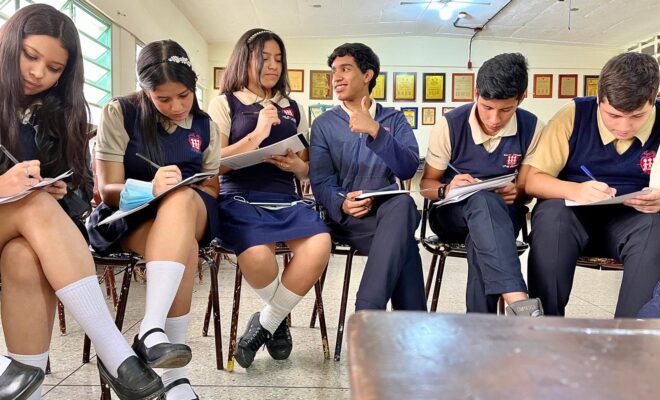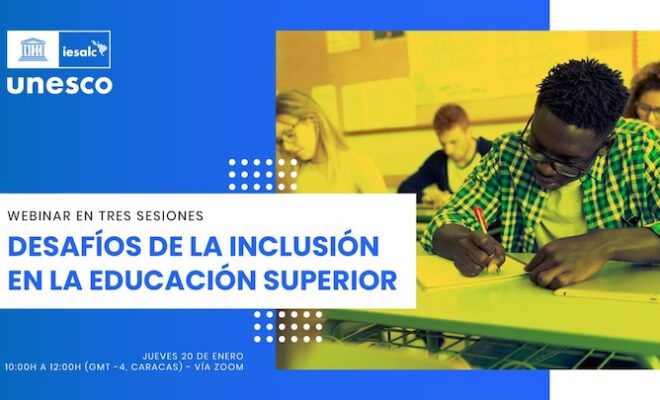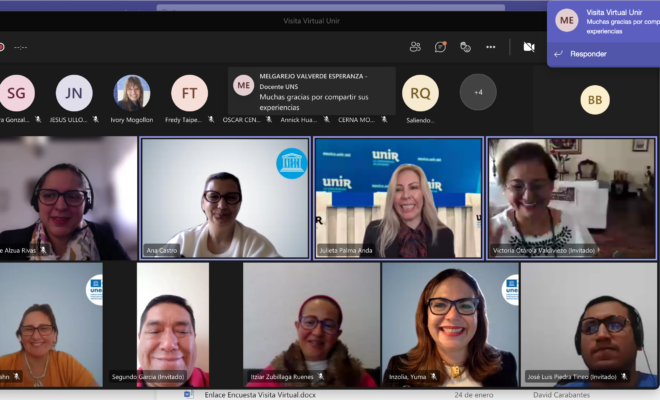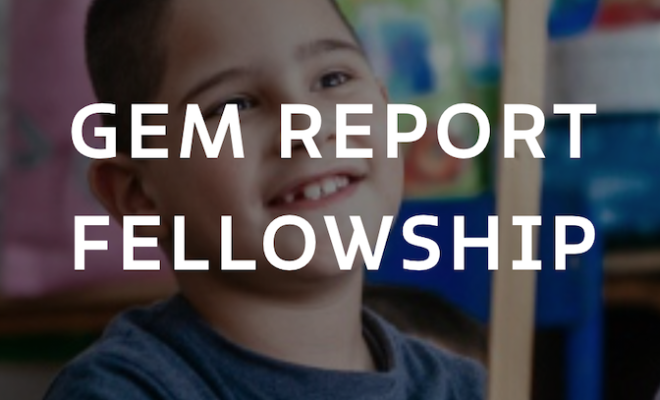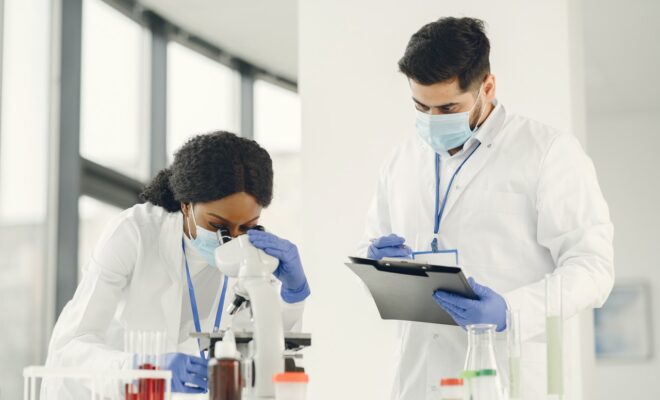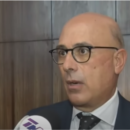The COVID-19 pandemic drives Latin American universities to research the effects of the pandemic

Pillar of society, necessary for scientific, technological and innovation development, the Latin American university seeks to get closer to society
Original version in Portuguese by Marcílio Lana | Higher education institutions (HEI) in Latin America and the Caribbean share similar realities. Considered as pillars of knowledge, HEI are recognized as necessary for social transformation and the promotion of development in their regions. However, their range of action is limited due to the scarcity and/or inconsistency of public funding mechanisms, and they still face political-institutional obstacles in the exercise of their autonomy. This panorama is presented as a synthesis of the II Virtual Forum of Rectors on the role of universities in science, technology and innovation: Challenges and opportunities.

Speakers. Photo: Marcílio Lana.
The webinar, held on December 10, 2020, by the CILAC Forum and the UNESCO International Institute for Higher Education in Latin America and the Caribbean (IESALC), was carried out within the framework of the presentation of the Report on the Research and the Link with Society in Latin American Universities, prepared by the Ibero-American Observatory for Science, Technology and Society of the OEI, as a contribution to the discussions of the CILAC Forum. This event gives continuity to the debate which began in the First Virtual Forum on the Challenges and Opportunities of Higher Education in Times of COVID-19, which took place on May 28, 2020, and will continue through the next webinars of the CILAC Forum.
The event was attended by Lidia Brito, director of the UNESCO Regional Office for Science in Latin America and the Caribbean (Montevideo); Zully Vera Galván, rector of the Universidad Nacional de Asunción (National University of Asunción), who also represented the presidency of the Asociación de Universidades Grupo de Montevideo AUGM (Association of Universities Group of Montevideo); Francesc Pedró, director of UNESCO IESALC; Mario Albornoz, principal researcher in the area of policy, science and technology of the Observatorio Iberoamericano de la Ciencia, la Tecnología y la Sociedad OCTS (Ibero-American Observatory for Science, Technology and Society); Edna Bonilla, Secretary of Education of the City of Bogotá; Alma Herrera Márquez, rector of the Instituto de Estudios Superiores “Rosario Castellanos” (Institute of Higher Studies “Rosario Castellanos”) in Mexico City; and Fernando Peirano, president of the Agencia Nacional de Promoción de la Investigación, el Desarrollo Tecnológico y la Innovación (National Agency for the Promotion of Research, Technological Development and Innovation) of Argentina. The moderator was José Antonio Quintero, coordinator of UNESCO IESALC programs.
Divorce and law
Mario Albornoz stated that, like UNESCO, the OCTS perceives science as a right, a right to exercise citizenship. He stated that Latin America expects a lot from its universities; it expects momentum and knowledge as a strategic resource to achieve equitable and sustainable development. But, for the researcher, “scientific progress also raises many ethical problems that must be considered.”

Source: IESALC.
According to Albornoz, one of the challenges to face is the distance that exists between society and academia. For him, there is still a divorce between the objectives of the universities and social demands. “One lesson we can learn from these days of pandemic is that universities have focused their attention on this crisis. They, the higher education institutions, need to support society effectively in order to have the capacity to anticipate natural and social phenomena”.
The researcher states that 45% of Brazilian universities have published articles on how to deal with COVID-19; in Colombia, 21%; in Paraguay, 16%; in Chile, 15%; in Mexico, 14%; and in Argentina, 12% of academic works have adopted the fight against the pandemic as an object of research. “The vast majority of Latin American production is generated by university researchers, but a third of the research originates from external demands. It is necessary to put an end to this divorce”.
Uncertainties and opportunities
“Half of the universities are convinced that the possibilities of investment in research will tend to decrease after the pandemic”, says the director of IESALC, Francesc Pedró, who considers that international cooperation in science, research and development should be seen as a window of opportunity. “There are countries where cooperative efforts began after the pandemic, such as Australia, Canada, Germany, England and the United States,” he said. Francesc Pedró believes that the commitment of the scientific community, which has sought answers and solutions to the problems facing society, can overcome geopolitical obstacles and define a new perspective of global citizenship, well informed by science. But Pedró also regrets that in the Latin America and Caribbean region, sharing efforts does not yet seem to be a priority for researchers and institutions.
However, the rapprochement between universities and social demands comes up against two obstacles: scarcity and/or inconsistency of public funding mechanisms and political-institutional barriers to the exercise of university autonomy. The student population growth curve has increased, as highlighted in the first forum. The global gross enrollment rate (percentage of the enrolled population in relation to the total population of a given age group) rose from 19% to 38% between 2000 and 2018. In the Latin America and Caribbean region, which presented the second best result in the world, the rate went from 23% to 52% and was not accompanied by investments.

Source: IESALC.
For Zully Vera Galván, rector of the Universidad Nacional de Asunción, public funding is one of the main obstacles for public universities in the region. “Investments in our countries are very low compared to the European Union,” she said. For the AUGM representative, the creation of international spaces and initiatives for reflection and cooperation are very well received.
The director of the UNESCO Regional Science Office for Latin America and the Caribbean, Lidia Brito, welcomed the good practices presented by panelists Edna Bonilla, Alma Herrera Márquez and Fernando Peirano (access the video to follow the experiences of the Education Secretariat of the District of the City of Bogota, the Institute of Higher Studies “Rosario Castellanos” of Mexico City and the National Agency for the Promotion of Research, Technological Development and Innovation of Argentina). “These are roads. I think this is what we should do. We need to organize and open up our articulation with governments, creating spaces for dialogue. This is a platform we want to create and strengthen in a dialogue aimed at education, science and technology for social transformation”, she concluded.
Access the Report on the Research and the Link with Society in Latin American Universities.
Photo: Foca Lisboa.
RELATED ITEMS
